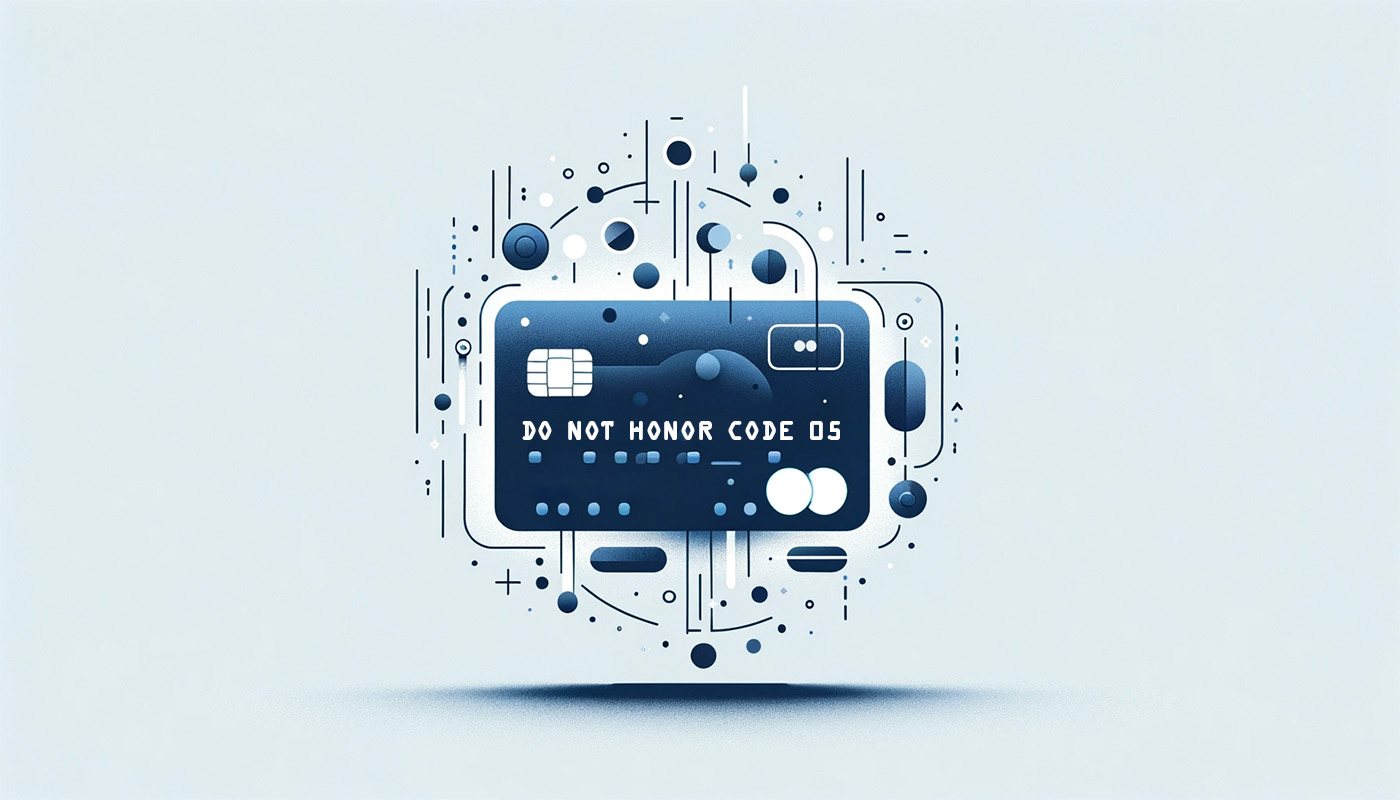
- CREDIT CARD DECLINES
- CREDIT CARD PAYMENTS
- CREDIT CARD PROCESSING
- DECLINE RATE
- PAYMENT PROCESSING
- STRIPE
Rid Your Stripe Store of “Do Not Honor” Credit Card Decline Codes
Dec 22, 2023 3 minutes
Is your Stripe store riddled with “Do Not Honor” messages and similar credit card decline codes? You’re not alone.
These codes are hurting your business and can lead to your Stripe account being terminated. A cleaner monthly payment processing statement not only looks better, but it also improves your odds of getting better rates and moving over to a new credit card processor in the future.
These decline codes are also not card network-specific. They apply to Visa, Mastercard, Discover, American Express, and virtually all others (credit and debit).
What Does the Decline Code “Do Not Honor” Mean on Stripe?
“Do Not Honor” is a particularly common decline code, yet it often leaves merchants puzzled about its meaning and implications. (It could be phrased a little better)
The “Do Not Honor” decline code is essentially a communication from the cardholder’s bank to your Stripe account, indicating that the bank is unwilling to authorize the transaction. This message is one of the most generic decline codes in the payment processing world and is unique in its ambiguity.
Why is it so vague? The reason lies in its versatility. “Do Not Honor” can be triggered by a variety of issues, ranging from insufficient funds in the cardholder’s account to suspicions of fraudulent activity. It serves as a catch-all response when the bank decides not to specify the exact reason for the decline. This can be due to the bank’s privacy policies, risk management strategies, or simply an operational choice to use a generic code for multiple scenarios.
For merchants using Stripe, understanding this decline code is critical to the survival of your store. It represents a point of transaction failure, which can impact customer satisfaction and overall sales. The key takeaway here is that “Do Not Honor” is a signal for further investigation. It prompts a need to look closer at the transaction details, the customer’s history, and possibly to reach out to the customer for resolution.

The reason behind the declines.
Why Does This Credit Card Decline Message Occur?
Understanding the “Do Not Honor” decline code is only part of the puzzle. It’s equally important to comprehend why this message occurs in the first place. When a credit card transaction is declined with this message, it’s a clear signal from the card issuer, but the reasons can vary widely.
- Insufficient Funds or Over Credit Limit: One of the most straightforward reasons is that the cardholder doesn’t have enough funds in their account or has exceeded their credit limit. This is a simple financial hiccup that can be quickly resolved by the cardholder.
- Suspicious Transactions: Banks and financial institutions are constantly monitoring for fraudulent activities. If a transaction appears unusual compared to the cardholder’s regular spending patterns, it might trigger a “Do Not Honor” response as a precaution.
- Cardholder’s Bank Restrictions: Some banks have specific restrictions on where and how their cards can be used. For example, certain types of transactions or merchants might be blocked due to the card-issuing bank’s internal policies or the geographical location of the transaction.
- Technical Issues: Sometimes, the decline isn’t about the cardholder or their account at all. Technical glitches in communication between Stripe, the merchant’s bank, and the customer’s bank can result in a “Do Not Honor” message.
- Expired or Invalid Card Details: Simple errors like entering an incorrect card number, expiry date, CVV, or an outdated billing address can also lead to this decline code.
- Lack of Customer Authentication: With the rise of 3D Secure and other authentication measures, a failure to complete these security steps can lead to a transaction being declined.
Each of these reasons highlights a different aspect of the transaction process. For merchants, the key is to have a robust system in place that can help identify and address these issues proactively, ensuring a smoother transaction experience for both the business and its customers.

Your Stripe account is at risk.
How Does This Decline Code Affect My Stripe Account?
When a “Do Not Honor” decline code surfaces in your Stripe account, it’s not just a one-off transaction issue. It can have broader implications for your business and how you manage your Stripe account.
- Impact on Transaction Success Rates: Each “Do Not Honor” code is a lost transaction, directly affecting your success rates. Frequent declines can signal potential issues with your payment process, affecting customer trust and your business’s reputation.
- Monitoring and Analysis Needs: Stripe provides detailed data on every transaction, including declined ones. A “Do Not Honor” code should prompt a careful analysis to identify patterns or recurring issues. This data is crucial for understanding the health of your payment ecosystem and for making informed decisions.
- Risk of Increased Scrutiny or Account Holds: If your Stripe account experiences a high volume of declines, especially “Do Not Honor” codes, it might draw increased scrutiny from Stripe. In extreme cases, this could lead to account holds or additional verification requirements, as Stripe might perceive these declines as indicative of higher risk.
- Implications for Customer Relationships: Every declined transaction is a potential lost customer. If a “Do Not Honor” decline isn’t handled well, it could lead to customer dissatisfaction and damage to your brand. Proactive communication and offering alternative payment options can mitigate this.
- Influence on Chargeback Rates: While a “Do Not Honor” code itself isn’t a chargeback, a pattern of declines can sometimes correlate with higher chargeback rates. This is because unresolved or failed payment issues might lead customers to dispute charges.
Understanding the impact of “Do Not Honor” codes on your Stripe account is essential. It’s not just about resolving individual transactions but also about maintaining a healthy, trustworthy, and efficient payment processing system.

Simple ways to reduce Do Not Honor declines.
How Can I Reduce “Do Not Honor” Card Declines?
Dealing with “Do Not Honor” card declines on Stripe is a challenge, but there are several strategies you can employ to minimize these occurrences and ensure smoother transactions for your customers.
- Educate Your Customers: Often, customers are unaware of the reasons behind a card decline. Providing clear information on your website or during the checkout process about common decline reasons can help them preemptively solve issues like expired cards or incorrect information.
- Use Address Verification Service (AVS) and CVV/CVC Checks: Implementing AVS and requiring the CVV for transactions can significantly reduce fraudulent transactions, which are a common cause for “Do Not Honor” error codes.
- Enable 3D Secure: 3D Secure adds an additional layer of authentication, which not only reduces the likelihood of fraud but also shifts some liability away from your business. It’s a win-win for security and reduced declines.
- Limit Retries: Don’t let the customer continuously retry the transaction. If it didn’t go through the second time, it won’t ever go through. Set retry limits through your gateway.
- Regularly Update Your Payment Gateway: Ensuring your Stripe integration is up-to-date means you’re using the latest security and authentication measures, reducing the chances of declines due to outdated protocols.
- Communicate with Your Payment Processor: Building a relationship with Stripe and understanding the specific decline codes you’re receiving can provide insights into how to adjust your processes or address specific issues.
- Offer Alternative Payment Methods: Sometimes, a card just won’t work. Offering alternative payment methods like digital wallets, bank transfers, or even different card networks can help capture sales that might otherwise be lost.
By implementing these strategies, you can reduce the frequency of “Do Not Honor” declines, creating a more seamless and efficient experience for both your customers and your business.

There are many, many credit card decline codes.
Other Common Decline Codes on Stripe
While “Do Not Honor” is a prevalent decline code on Stripe, there are several other codes that merchants frequently encounter. Understanding these can help you better navigate transaction issues and improve your overall payment success rate.
- Insufficient Funds: This code appears when a customer’s account lacks sufficient balance to complete the transaction. It’s a straightforward issue that typically requires the customer to add funds or use a different payment method.
- Stolen or Lost Card: When a card is reported lost or stolen, transactions attempted with it are automatically declined. This is a critical security measure to prevent fraudulent use.
- Expired Card: Cards past their expiration date will be declined. Ensuring customers update their card information is key to avoiding this issue.
- Invalid Card Number: If the card number entered doesn’t match any valid card format, the transaction will be declined. This often occurs due to manual entry errors.
- Incorrect CVV: The Card Verification Value (CVV) is a security feature, and transactions will be declined if the CVV entered is a mismatch. This is another common entry error, like an incorrect PIN or postal code.
- Transaction Not Allowed: This code is used when a card’s issuing bank does not permit the specific transaction type or transaction amount. It can be related to the bank’s restrictions or cardholder settings, or even just a precaution when using a new card.
- Duplicate Transaction: To prevent accidental multiple charges, Stripe will decline transactions that appear to be exact duplicates of one another within a short timeframe.
- Pick Up Card: This is quite aggressive and is a message to the merchant that you should not give the card back to the customer. The card should be reported.
Understanding these additional decline codes is essential for diagnosing payment issues and providing appropriate customer support. Each code offers a different insight into potential problems and their solutions, helping you maintain a smooth and successful payment process.

Stripe May Not Be Your Best Solution
As we wrap up our exploration of decline codes on Stripe, it’s clear that understanding and effectively managing these codes is crucial for the success of any online business. The “Do Not Honor” decline, along with other common codes, presents both challenges and opportunities for merchants to enhance their transaction processes and customer experience.
The journey doesn’t end with recognizing these codes. It’s about taking proactive steps to minimize them, improve your payment systems, and ensure customer satisfaction. Remember, each declined transaction is an opportunity to learn, grow, and refine your approach to online payments.
For those looking to take their payment processing to the next level, consider partnering with a dedicated merchant account provider like DirectPayNet. With specialized knowledge, tailored solutions, and a focus on reducing decline rates and managing risk, a partnership with DirectPayNet can transform the way you handle online transactions, leading to increased sales and happier customers.




